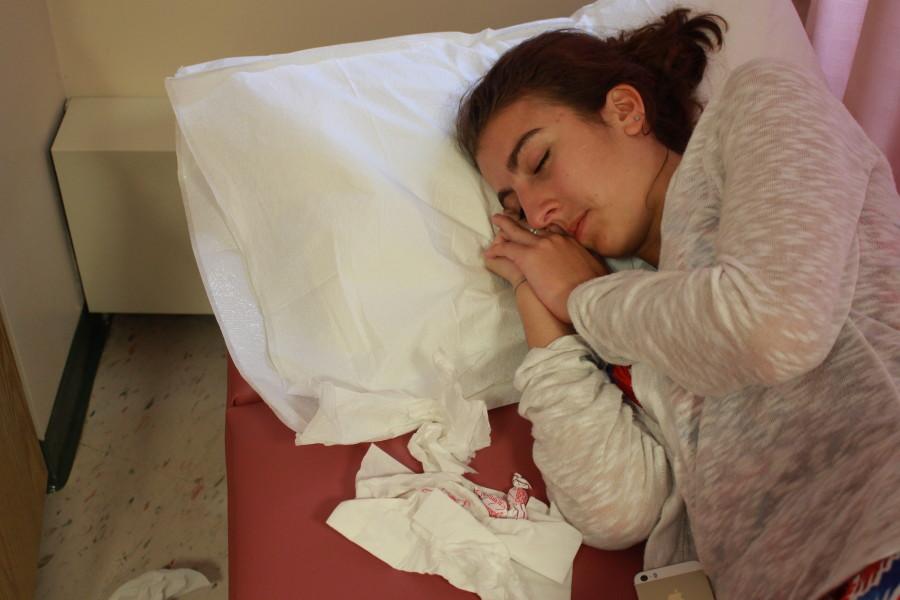The Kissing Disease
November 23, 2015
“As I laid in bed, thinking I couldn’t feel any worse than this very moment, I slowly fell asleep scared of what I’d feel like when I woke up,” said senior Lindsay Chmura as she fought through mono for about a month. Mono is an illness that slowly takes over your immune system. As you may not know, mono actively affects your immune system for as long as 4 months before you start getting symptoms. Mono is usually spread through saliva and is also known as the “kissing disease.” Many teenagers in Ipswich and areas around us have had or have known someone with mono.
Not only does mono make you tired, cause a fever, and make your throat sore, it also enlarges the spleen in more than half of people that have the illness. If the spleen becomes enlarged, doctors recommend avoiding contact sports or heavy lifting for a few weeks. This advice is given to avoid the rare complication of splenetic rupture that can occur after trauma, which can also happen spontaneously. This is a potentially life-threatening complication that requires immediate medical treatment. Interviewing a registered nurse, Chris, he says, “Although mono could potentially last a very long time and be very dangerous, most cases of mono aren’t as serious as they are said to be.”
There are many different ways to prevent getting mono. Something as simple as sharing a drink with one of your close friends could put you at risk of getting the illness. Mono is most common among people ages 15-24. With that being said, anyone at any age can get the illness but teenagers are most likely to actually get it. Self-care is usually all that is needed if you have mono. Unless you develop a serious complication caused by mono, no medicine or treatment will speed your recovery. Most people who have mono recover without problems. If you suspect that you have any of these symptoms, see your doctor as soon as possible so you can be diagnosed with or without mono. If you end up not having mono, antibiotics will most likely be prescribed to a degree of what illness you may have.

